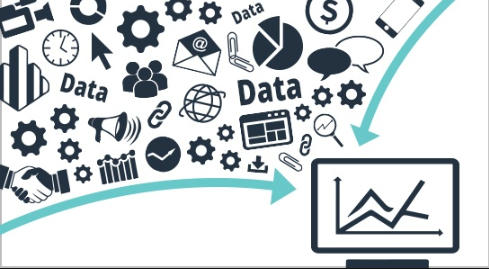*The advent of social media was first welcomed as harbinger of world peace and connectivity. It’s creators put forward that an increasingly connected world would lead to a global society of peace and understanding. Borders would dissolve and national affiliations would be shed in favor of a new, global identity. We would be “Earthlings”, not Americans or Russians or Australians or whatever. Once disparate economies would blend and merge, lifting people out of poverty and enriching those who could tap these new markets. Isolated communities would become part of the global cultural zeitgeist.
Rather than moving humanity towards this utopian goal of a global, interconnected community, its proliferation and creep into every facet of one’s life made it a powerful and unchecked tool of misinformation, surveillance, and corporate psychology. It devolved into a laboratory of mass manipulation where sociological and psychological experimentation could be performed on an unprecedented scale. A powerful tool of propaganda and misinformation that has opened a whole new front of information warfare. In short, it has become the bane of modern existence and is doing significantly more harm than good to our societies, our institutions, and our collective mental health.

Despite all the posturing as the facilitators of communication and split-second delivery of products, services, and information, social media companies have always been purveyors of data. Their service is fundamentally surveillance, their product being the data of their users, surrendered willingly and enthusiastically. That data is then used to assemble sophisticated psychological and consumer profiles of each and every one of their users across different platforms, websites, and services. Purchasing habits and tastes. How much money they make. Google searches. Porn preferences. Where they live and work. Who their friends and family are. Who they are sleeping with. Where they stand politically. What they are saying to their friends in private and public communication. Email addresses. Phone numbers. Bank information. Social security information.
Truly the most intimate, sensitive, and closely protected information we have as individuals.
This data is then used in myriad ways. The most profitable for the platforms being selling it to advertisers for ad targeting. Ad audiences are sold on proprietary ad marketplaces, where engagement is effectively bought and sold by advertisers. The platforms slice and dice and package your data and use it to create hyperspecific marketing segments, allowing them to target ads with a granularity and efficiency that marketers once only dreamed of.

Before, they could only target ads in a more oblique and general way. For example, if they were targeting teenage boys they would need to figure out where their attention was via focus groups and polling and other market research activities. They would have to determine the most effective advertising medium to reach them, like placing commercials during their favorite TV shows and putting advertisements in their favorite magazines. They would also have to figure out their consumption habits and tastes, whether they would actually be interested in buying whatever product they were trying to sell. This was all a time and capital intensive process.
Now, this information is all part of the consumer profiles collected on social media and tech platforms. They don’t have to run a focus group trying to figure out what TV shows teenage boys are watching, because they can see using social media engagement that X% of teenage boys are watching Y show because Z of them ‘like’ it on Facebook. They don’t have to ask them what products they want to buy because they can just look at their Google search history or Amazon shopping carts and see exactly what products they are interested in. They don’t have to strategically place ads in a fragmented media environment when they can just put them on Facebook or Twitter or Instagram, where they know their customers will allocate their attention at one time or another. It’s the most intimate and direct marketing channel available. The whole process of market research now happens at a frightening scale and speed, making the targeting and customization more and more specific and more and more effective. And as hardware and software becomes more advanced, so too is the data collection practices. They know your precise location using improved GPS tracking. They know your exercise habits thanks to health tech integration like FitBits. They can even remotely access your device.
They can even remotely access your device”

There have been spooky reports of Facebooks’s ability to listen to your conversations via accessing your microphone. Users have complained that they were talking about a product or service in a real life conversation, and then report seeing ads for that particular product online. There’s no question Facebook has the technological capacity to do this, however it’s probably unnecessary from an advertising standpoint. Their consumer profiles are already so refined, the predictive power of their algorthims so dynamic, that they can virtually anticipate the wants and needs of their consumers. They don’t need to listen to what you are saying to sell you things because they already know what you want. Why would they needlessly spy on their users, opening themselves up to public scrutiny and legal action, when they already get all that information willingly?
The social media companies themselves use this data to continually improve their platform, making it more addictive and more engaging, and thus making them more profitable.
Ultimately, these platforms are jockeying for your attention. Every second you spend on Facebook is lost engagement you could have spent on Twitter or Instagram or another platform. Therefore making your platform as engaging and addicting as possible is the end-goal. User engagement and activity has been commodified in the form of likes, shares, and clicks, and becomes the data that drives the evolution of their platforms. Only by maximizing this engagement, and thus maximizing the amount of input data for their algorithms, can they efficiently refine those algorithms and services at scale. In other words, they are creating feedback loops of engagement. The more time you spend on their platforms, the more data they have available to refine said platform, leading to more time spend on the platform. And on and on.
This refinement comes in a variety of forms, some more innocuous that others. Platforms can leverage their massive user bases to perform A/B testing to optimize features and functionality that will maximize engagement. This could be innocent things like color schemes, UI or interface tweaks, and functionality improvements. However ‘improvements’ could come in a more sinister form, like burying certain kinds of content and elevating others to affect the moods of their users. Facebook itself has admitted to doing as much, revealing they regularly tinker with users news feeds and content to under the guise of improving user experience. They claim its all above board, arguing that users have consented to this type of ‘user experience improvement’ by agreeing to it their terms and conditions of use. I doubt that had many users known they would be subject to psychological experiments as a result of using Facebook, and I suspect many wouldn’t have signed up in the first place. However this unwitting psychological experimentation is what makes their data so much more valuable.
The Hawthorne effect, also known as the observer effect, occurs when individuals modify their behavior, usually in a research or experimental setting, in response to their awareness of being observed.

In other words, people don’t act how they normally do when they know they are part of a scientific or psychological experiment. This effect can become a confounding variable and can distort the conclusions drawn by a study. Their findings become bunk outside of an experimental context and don’t offer an honest assessment of human nature or the psyche in the real world.
The data you generate online, however, is (mostly) free of this effect. You aren’t worried about someone judging you for what kinds of things you search on google, or what kinds of pornography you prefer to look at, or what kind of news sites you read. There is no clinical observer looking over your shoulder, just the nameless, faceless, formless entity of “The Internet”. The internet is a largely anonymous, judgement free zone that in many regards offers a glimpse into your truest self. Pure, unadulterated, unfiltered insight into our deepest insecurities, most pressing worries, and most taboo curiosities. This makes the data being collected that much more valuable.
And sure, you are probably aware that this data is being collected, or at least scrutinized, by someone, somewhere. And it certainly is. But that knowledge isn’t affecting how you interact with the internet as a whole. Nobody is censoring their own internet activity because they are afraid of some unknown repercussions. The police aren’t going to knock down your front door because you googled something inappropriate or taboo. And even if people are censoring themselves, it’s probably because they are trying to hide something nefarious or illegal. The threat of surveillance itself serves as a deterrent to illegal internet activity, and is one of the biggest reasons government and intelligence organizations have flocked to the platforms.
Intelligence organizations and governments use this data for surveillance purposes, much in the same way advertisers do.”
Intelligence organizations and governments use this data for surveillance purposes, much in the same way advertisers do. They are both trying to predict behavior. Where the advertisers are trying to predict consumption and spending, intelligence agencies try to predict the potential or the capacity to commit crimes like terrorism. They can keep tabs on suspicious behavior and collect evidence in the for of online activity that can help prosecute criminals or support investigations. This surveillance is decidedly problematic.
The surveillance of innocent Americans is a violation of the Fourth Amendment, which protects Americans against unreasonable searches and seizures without a proper warrant and probable cause. It’s for that reason that secret federal surveillance courts exist to determine the legality or illegality of these programs and activities, and the fact we only know about them thanks in part to the Snowden revelations echo the Orwellian fear of the secret surveillance state. It’s certainly a stretch to say we are hurtling towards a 1984 Big Brother police state, however the concerns over privacy, censorship, and though policing are well-founded.
Social media platforms are also being utilized as an offensive, proactive means of achieving foreign policy goals, undermining rivals abroad and, as we have seen more recently, a new theater of cyberwarfare. Nowhere before in the history of mankind was there such a centralized, standardized repository of data offering such a direct line into the collective psyche of the world’s citizens and consumers. Nowhere before was there a place where someone could reach literally billions of people almost instantaneously while bypassing traditional barriers like distribution, editorialization, and censorship. The user bases of social media platforms and the internet as a whole are the perfect environment for propaganda to spread, and the proliferation of fake news has shown that while online we are susceptible to manipulation via propaganda. Russian intelligence officers have already been indicted by the US DoJ for their role in influencing the 2016 presidential election by using fake news to sow mistrust and spread disinformation. The election itself was decided by less than 100,000 votes in three or four swing states. It’s not a stretch to think that the uber-granular nature of Facebook ads could have been used to strategically target voters in specific swing districts to influence the election one way or the other. The Russian government clearly prefered one candidate over the other, and were able to bolster the chances of their chosen candidate with relatively little capital or risk.
GOP operatives and their media allies, such as Fox News, have used internet conspiracy theory to muddy the waters of debate, bring about a moral whataboutism, and poison discourse in much the same way. It follows a predictable pattern. Someone within their right-wing media network, usually a fringe element like an extremist blog or 4Chan thread or Twitter account, puts forth a conspiracy theory. The more mainstream elements then trumpet the theory, injecting it into public discourse. Once more honest outlets present evidence to refute it, they retract it. But it’s already out there in the zeitgeist, giving them the necessary political cover to simultaneously minimize their own role in its proliferation and give it the mainstream legitimacy necessary for it to spread. Brandolini’s Law postulates that the amount of energy and resources needed to refute bullshit is orders of magnitude greater than what’s required to produce it. Mainstream media organizations work themselves into frenzies fact checking and talking to experts and debunking these theories, while the bullshit proliferators are already on to the next story. It’s an information war of attrition.
It’s clear that social media itself is rife with problems that affect us at both the individual and the marco, societal level. But what can be done? If it were up to me, I would just shut them all down. But these companies are too profitable and too pervasive to just shut down. Barring some kind of drastic government sequestering of the platforms or some organic migration en masse away from social media, these companies aren’t going anywhere. There are a few remedies that I propose, some more subtle design tweaks to the platforms themselves and other more large scale legislative solutions.
Give users agency over their own data
Our own personal data and online behavior should be just that, ours. We should be in charge of what kind of data we choose to share with advertisers and third-parties, and we should be the ones reaping the rewards. We should be able to opt-out of any kind of non-essential data collection on our behalf. Logistically speaking, this would be very difficult. How does one value engagement? Are some consumers or types of data inherently more valuable to advertisers than others? How would this engagement be monetized efficiently? These are all crucial questions that need to be answered if we are to take back control of our data.
Hold companies who abuse our data accountable
Imagine if a building burned down, and it was discovered that it’s proprietors failed to outfit it with a modern fire safety system. They would be prosecuted for their negligence, most likely driven by a desire to save money, which might have cost people their lives and property. Data breaches and hacks must be treated the same way. It seems like every week there is a new hack that exposes the private information of millions of consumers. However very few, if any, companies are actually held responsible for these hacks. These corporations must be held liable for the mishandling of our data. Similarly, companies who engage in nefarious data collection practice must be held accountable, and an agreed upon standard of data collection and storage must be implemented and enforced. The GDPR was a great step in this direction, and the U.S. legislative bodies must implement something similar.
Educate people about the psychological impacts of social media
Social media fundamentally alters the chemistry of our brains. It programs us to seek the dopamine-triggering validation that comes with seeing your post get likes and shares. It’s quite literally a chemical analogy to snorting cocaine. These impacts are only worse in young people. Their attention spans are waning. Bullying and cyberbullying are a huge problem in schools of all kinds, only magnified by social media. We are in the midst of a mental health crisis in America and it’s only made worse by the omniscience of social media.
We must also combat fake news by making media literacy and critical thinking skills a curricular focus. We need students (and adults) who can consider bias and figure out for themselves what is fact and what is bullshit. We need news organizations who respect the idea of objectivity and are not thrall to particular political organizations or special interests.
Lyle Morrison is a writer from Boston and can be found
@RichardStash99 and at whoislylemorrison.com








